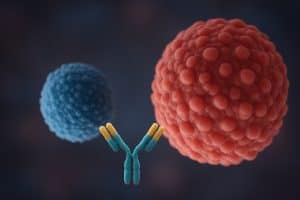
GSK signs deal with academics
pharmafile | May 4, 2012 | News story | Research and Development, Sales and Marketing | Cancer, GSK, PROTAC, Yale, academia
GlaxoSmithKline has forged another link with academia, signing a deal with Yale University to design a potential new class of medicines that attack the proteins dictating progression in diseases, including cancer.
The drug discovery research collaboration will focus on Yale’s work on proteolysis targeting chimeric molecules (PROTACs), attempting to show that they can be turned into medicines.
This is a significant goal because PROTAC technology pushes these proteins to what Yale calls a cell’s ‘garbage disposal’ – which means they could be destroyed.
Work has already started on the project, with researchers pledging to demonstrate that the technology at least works by the end of this year.
Although mutations or higher than normal amounts of these proteins typically drive cancers, inflammation and infections, the researchers say many cannot be tackled by traditional methods.
“This partnership is exploring a new way for promising, but unproven therapeutic approaches to jump from the academic lab more quickly into the early stage pharmaceutical pipeline,” said Kris Famm, head of GSK’s protein degradation effort.
Famm will lead the programme with Craig Crews, professor of molecular, cellular and developmental biology, and professor of chemistry and pharmacology at Yale.
In common with many other manufacturers, GSK has developed a number of deals with UK educational institutions, most recently teaming up with Dundee University to look at the most neglected parasitic diseases.
The company says the Yale partnership is different – in part because of the US involvement, and also since it has the potential to discover a new class of medicines.
For an undisclosed sum, GSK will gain the right to use PROTAC technology across all therapy areas: Yale will pick up milestone and royalty payments for each successful drug found.
“The ground-breaking work Craig and his team have done may allow us to tackle a whole host of disease-causing proteins that were previously out of reach for medicines,” Famm added.
Crews said: “This collaboration offers a new paradigm for how pharma companies and academic researchers can benefit from working more closely together.”
Yale has a strong track record as an academic powerhouse whose molecule discoveries have attracted the interest of big pharma.
It licensed its investigational HIV compound festinavir, for example, to Tokyo-based Oncolys BioPharma, which has since been picked up in a multi-million dollar deal by Bristol-Myers Squibb.
A year ago Swiss biotech firm Debiopharm teamed up with researchers at the university to develop Debio 1036, a first-in-class inhibitor for a fundamental inflammatory pathway, which plays essential roles in diseases’ progression and severity.
Yale experts were also among those advising on the make-up of the planned UK Centre for Medical Research and Innovation (UKCMRI).
Adam Hill
Related Content

GSK’s Exdensur receives MHRA approval for asthma and rhinosinusitis
GSK’s Exdensur (depemokimab), a twice-yearly biological medicine, has received approval from the UK Medicines and …

Central nervous system cancer metastases – the evolution of diagnostics and treatment
The current forms of immunotherapy, how T cell therapy works and what the future holds

BioMed X and Servier launch Europe’s first XSeed Labs to advance AI-powered antibody design
BioMed X and Servier have announced the launch of Europe’s first XSeed Labs research project, …





